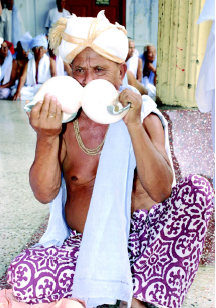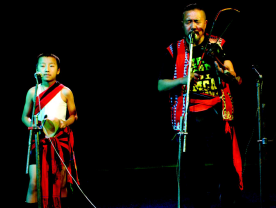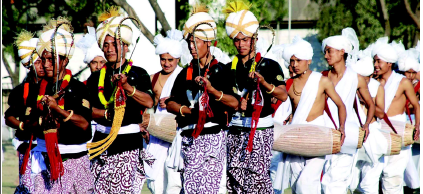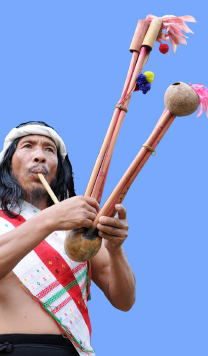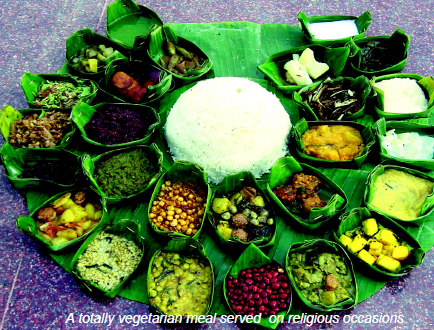Manipur: Music
(→Manipur: Native Music & Cuisine) |
(→Manipur: Native Music & Cuisine) |
||
| Line 19: | Line 19: | ||
[[File: music.PNG ||frame|500px]] | [[File: music.PNG ||frame|500px]] | ||
[[File: music1.PNG||frameleft500px]] | [[File: music1.PNG||frameleft500px]] | ||
| − | + | ||
[[File: music3.PNG||frameleft500px]] | [[File: music3.PNG||frameleft500px]] | ||
| − | [[File: music4.PNG|| | + | [[File: music4.PNG||frame| 500px]] |
| − | [[File: music5.PNG ||frame | + | [[File: music5.PNG ||frame left500px]] |
Revision as of 02:33, 23 January 2014
You can update or correct this page, send photographs and/ or |
Manipur: Native Music & Cuisine
Traditional Music
Manipur is a land of music and dance.
Pung, Kartal, Mangkang, Bansuri and Sembong are
the soul of Manipuri Sankritana music and Classical
Manipuri Dance. It assumes an important ritual
character as an indispensable part of social and
devotional ceremonies. Pena is a string instrument
which is played by fiddling somewhat similar to the
Ektara of Bengal.
The tribes of the hills use a wide range of wind musical instruments made of bamboo. Puleh, Toutri, Theibe, Theiphit and Relru are some of the popular tribal musical instruments. Reuben Mashangva, a popular Tangkhul folk artist, has been successfully popularising the traditional music of the Tangkhuls.
Native Cuisine
Manipuri cuisine is simple and healthy. Dishes are typically boiled, smoked or spicy foods that use chilli pepper. The staple diet of Manipur consists of rice, leafy vegetables, fish and meat. ‘Ngari’ or fermented fish is a popular ingredient in the dishes. ‘Umorok’ , an extremely hot chilli is another favourite ingredient among the people. The meals are simple but very well prepared. One has to taste them to believe it.
